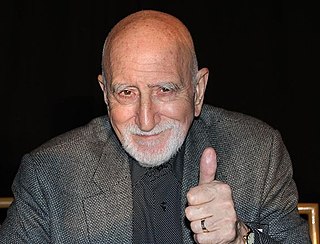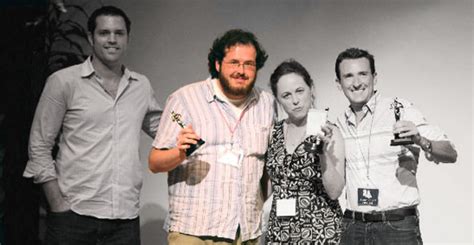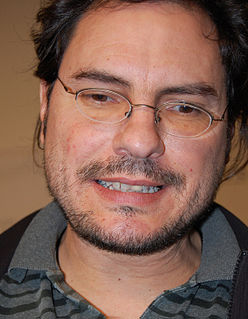A Quote by Michael Hirst
My instinct is to absolutely recoil when talking about writing in a mechanistic way. Nothing could be dumber than writing a film or TV script based on prescriptions, on other peoples' ideas of what character should be.
Related Quotes
When you're writing TV or movies your vernacular is time, it's all based on rhythms, a character takes a beat or two characters have a moment, like everything is about time. And when you're writing a comic, everything is about space. It's how many panels to put on a page, when should you do a full page splash, what is the detail that you see in any particular image.
Sometimes we'll walk into a set, and I'll think, 'Oh, this film doesn't look like this.' You know, 'cause I read the script, and I saw it in my head in some other way. Which is a lot like what happens when they're writing a movie that's based on a book - I'm like, 'Ah! He doesn't have a beard.' You have these visions in your head about it.
When I was writing the script, I knew didn't want to make a sports movie. I was very clear that I wanted to make a sibling rivalry story. So when I was writing the script, the football was getting in the way of the drama. One day, I saw Michael Haneke's Funny Games, which is probably the most violent film I've ever seen - but the violence is off camera. When I finished watching the film, I said, 'Hey, that's what I have to do.' Haneke gave me this solution.
The script [of Regression] wasn't the draw for me. It was largely Alejandro [Amenabar] and his way of talking. To hear him talking about the script was way more interesting than the script. He wrote it, and so, English is his second language. It's an interesting thing. I've had that before. I was directed by Alfonso Cuarón before, too. It's always interesting when you're being directed by somebody like that. So much of directing is about communication, and finding the right words, and what it means, and how to convey certain emotions and ideas.
The story goes that every Jedi constructs his own lightsaber, and every penmonkey constructs his own pen. Meaning, we all find our own way through this crazy tangle of possibility. This isn't an art, a craft, a career, or an obsession that comes with easy answers and isn't given over to bullshit dichotomies. We do what we do in the way we do it and hope it's right. Read advice. Weigh it in your hand and determine its value. But at the end of the day - and at the start of it - what you should be doing is writing. Because thinking about writing and talking about writing just plain isn't writing.
At last I understood that the way over, or through this dilemma, the unease at writing about 'petty personal problems' was to recognize that nothing is personal, in the sense that it is uniquely one's own. Writing about oneself, one is writing about others, since your problems, pains, pleasures, emotions—and your extraordinary and remarkable ideas—can't be yours alone. [...] Growing up is after all only the understanding that one's unique and incredible experience is what everyone shares.



































